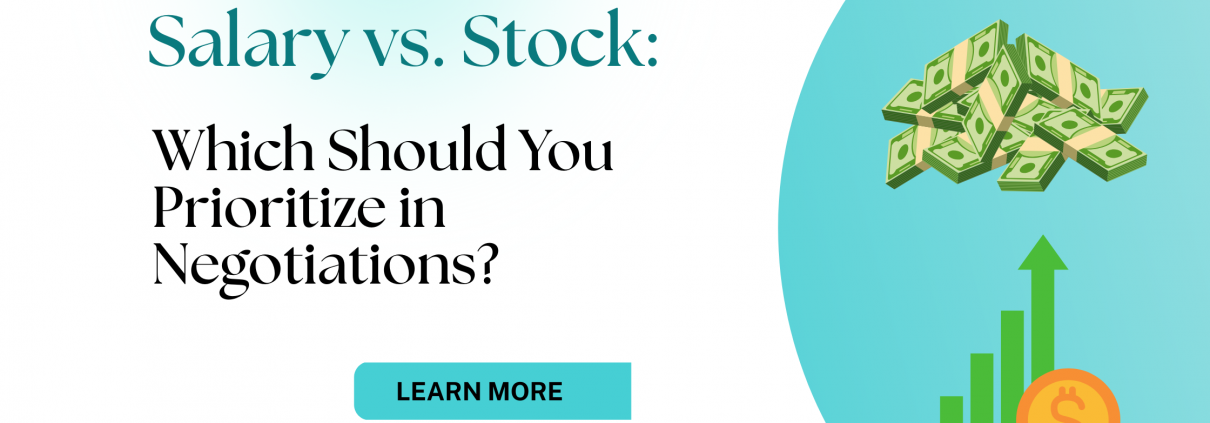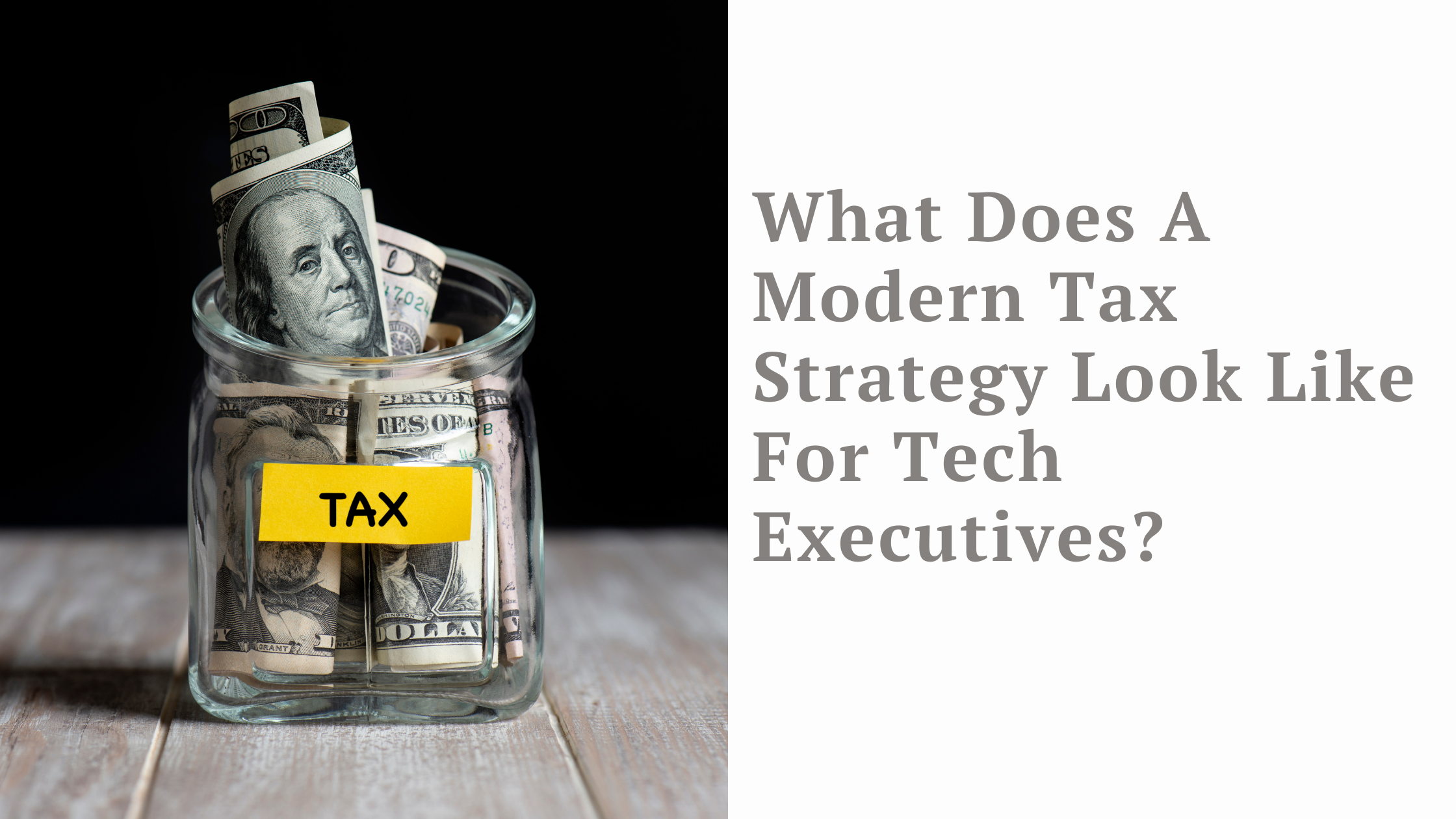Salary vs. Stock: Which Should You Prioritize in Negotiations?
True Root Financial is a fee only financial advisor and financial planner based in San Francisco, CA. We serve clients across the globe.
When negotiating a job offer, especially in the tech industry, you’re often presented with more than just a base salary. Equity compensation like Restricted Stock Units (RSUs), stock options, or Employee Stock Purchase Plans (ESPPs) can significantly sweeten the deal. But it also raises a tough question: Should you prioritize salary or stock when negotiating?
The answer isn’t one-size-fits-all.
If you are a tech professional interested in learning how we can help you claim your financial independence by investing wisely, minimizing taxes, and maximizing your equity compensation, please book a no-obligation call here.
Key Takeaways:
- Start with your risk tolerance if you’re uncomfortable with volatility, lean toward salary
- Prioritize salary if you need reliable cash flow to cover your lifestyle or financial obligations
- Choose stock if you can afford to wait and want to bet on long-term company growth
- Research the company’s stage, valuation, and stock history to understand what the equity is worth.
- Know how your equity will be taxed; RSUs, ISOs, and NSOs all have different rules.
The Trade-Off: Security vs. Upside
Negotiating between salary and stock often comes down to your preference for certainty versus potential.
Salary offers stability. If you have significant living expenses (e.g., rent or mortgage in a high-cost area like San Francisco), student loans, or childcare costs, a higher salary ensures you can meet your obligations without financial stress.
Stock offers upside. If your company performs well, your equity could grow in value far beyond what a salary increase would provide. However, it’s not guaranteed, and you may face liquidity constraints, tax implications, and market risk.
Key Factors to Consider in Salary vs. Stock Negotiations
1. Your Risk Tolerance
Stock compensation is a form of investment. Would you feel comfortable seeing your stock value fluctuate by 30% or more depending on the market?
If you’re risk-averse or if your financial stability depends on predictability, a higher salary might be the better call. But if you have a solid emergency fund and long-term time horizon, you might be in a position to bet on equity upside.
2. Stage and Stability of the Company
Early-Stage Startups: You may receive more equity and less salary. But that equity might never materialize into real value if the company fails or doesn’t go public.
Mid-Stage (Pre-IPO): Upside potential is still significant, but slightly more stable than a seed-stage startup. Still, liquidity is uncertain.
Public Companies: RSUs and stock are easier to value, and they can usually be sold once vested, offering more predictability.
If you’re joining a publicly traded tech company like Apple, Google, or Salesforce, stock may be more valuable and liquid, making it worth negotiating for. At a Series A startup, however, you may want more salary to offset risk.
3. Your Cash Flow Needs
- Do you live in a high-cost city like San Francisco or New York?
- Are you supporting a family or planning for a major life event (wedding, house, baby)?
- Do you have high-interest debt or student loans?
If so, prioritize a higher salary. Stock may not help you in the short term, especially if it vests over four years and you can’t sell it right away.
4. Taxes and Timing
Taxes are one of the most overlooked aspects of stock compensation. Here’s what you need to know:
- Salary is taxed as ordinary income
- RSUs are taxed as income when they vest (based on the market value of the shares)
- Stock Options may be taxed at exercise (if non-qualified) and again when you sell
- Capital gains taxes apply if you hold your stock after vesting and sell later at a profit.
Timing your sales and understanding tax implications can impact whether stock compensation is truly worth it. A financial advisor can model out different tax scenarios so you’re not blindsided.
5. Liquidity and Diversification
Even if your stock is worth a lot on paper, it might not translate to cash you can use, especially if it’s not yet publicly traded. Additionally, tying too much of your wealth to one company increases concentration risk.
You may want a higher salary if:
- The company is private, and there’s no clear IPO timeline.
- You prefer to invest in a diversified portfolio rather than overexpose yourself to your employer’s future.
A Real-World Example: Stock vs Salary
Jason – Prioritized Salary
Jason, a 35-year-old senior engineer in San Francisco, had two offers:
Option A: $185K salary + $100K RSUs
Option B: $155K salary + $150K RSUs
With a mortgage, kids, and high expenses, he chose Option A. The higher salary gave him a reliable monthly cash flow, even if the stock upside was smaller.
Emily – Prioritized Stock
Emily, 29, a product manager with no debt and a solid emergency fund, had this offer:
Option A: $140K salary + $90K equity
Option B: $125K salary + $160K equity
She believed in the startup’s growth and was comfortable taking more risks. After talking with a financial advisor, she felt confident in her emergency fund and wanted to make a long-term bet, so she chose Option B for the higher long-term upside.
Need a Second Opinion on Your Offer?
We work with tech professionals to help them navigate equity, taxes, and long-term wealth building. Let’s connect and make sure your compensation actually works for your life. Book a call below:








